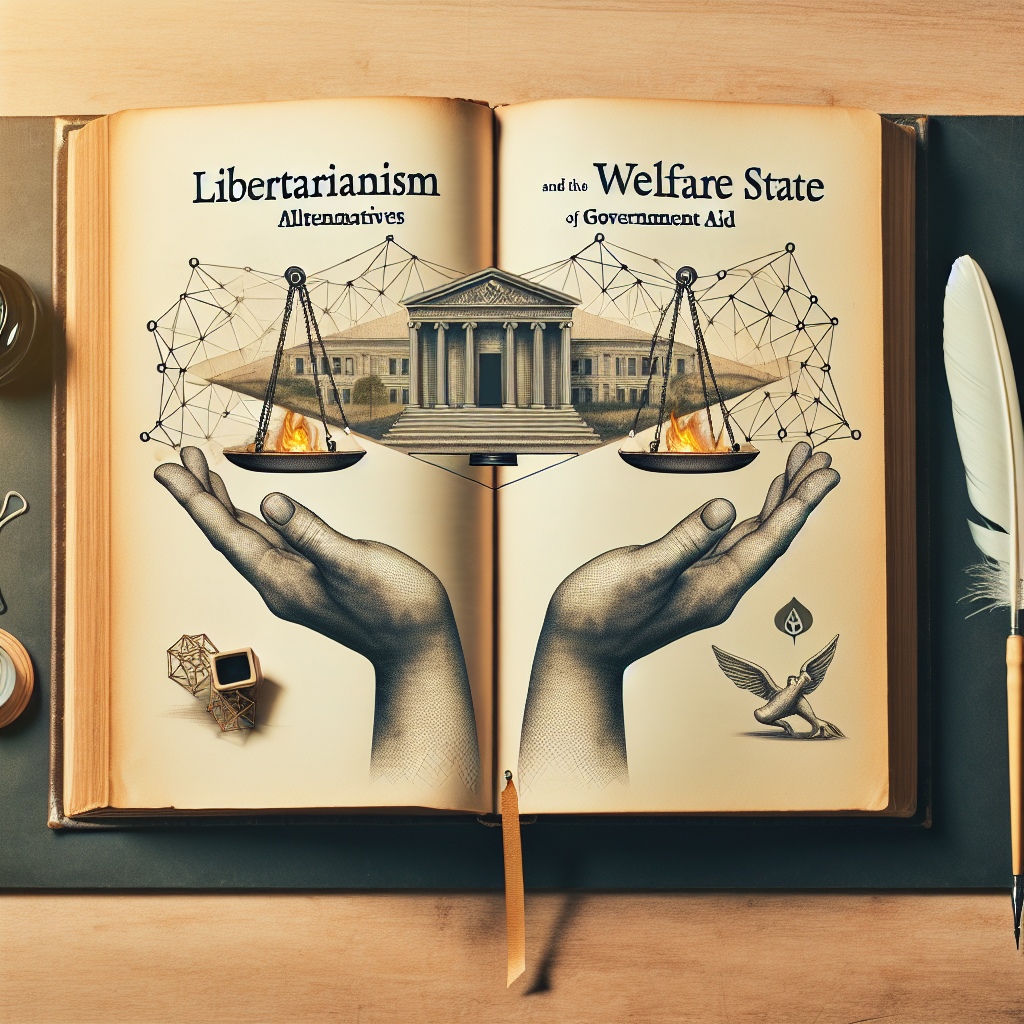Libertarianism and the Welfare State: Alternatives to Government Aid
Understanding Libertarianism
Libertarianism is a political philosophy that emphasizes individual freedom, personal responsibility, and limited government. Adherents argue that individuals should have the liberty to make their own choices without excessive government intervention. The core belief is in the importance of personal autonomy and that governments should primarily serve to protect individual rights rather than to manage social welfare.
The Concept of the Welfare State
The welfare state refers to the government’s role in providing social safety nets and services to ensure the well-being of its citizens. This includes unemployment benefits, healthcare, education, and housing assistance. Proponents argue that such systems are essential for promoting social equity and reducing poverty, while critics often claim they promote dependency and inefficiency.
Libertarian Perspectives on the Welfare State
Libertarians contend that the welfare state undermines personal responsibility and self-reliance. They argue that government intervention distorts the market and creates dependency among citizens. Instead of relying on government programs, libertarians advocate for solutions based on voluntary action and market mechanisms.
Emphasizing Personal Responsibility
A central tenet of libertarianism is the belief in personal responsibility. Libertarians argue that individuals should take charge of their own lives and welfare, rather than relying on government programs. They contend that the welfare state disincentivizes hard work and encourages a victim mentality. This perspective promotes the idea that social support should come from family, friends, and community rather than government programs.
Promoting Charity and Philanthropy
Libertarians advocate for the expansion of private charity and philanthropy as alternatives to government aid. They believe that voluntary donations and community involvement can effectively address social issues without the pitfalls of political bureaucracy. By allowing individuals to direct their charitable contributions, they argue that resources can be allocated according to the needs and priorities of the communities they aim to help.
Market Solutions to Social Welfare
Another libertarian alternative to government assistance is the promotion of free-market solutions to social welfare issues. Here are a few notable approaches:
1. Microfinance and Entrepreneurial Support
Microfinance initiatives provide small loans to individuals in low-income communities, empowering them to start their businesses. By facilitating entrepreneurship, these programs aim to lift individuals out of poverty without the need for government assistance. Libertarians support such initiatives as they foster independence and economic growth.
2. Health Savings Accounts (HSAs)
In the healthcare debate, libertarians argue for the use of Health Savings Accounts (HSAs). These accounts allow individuals to save money tax-free for medical expenses, giving them more control over their healthcare decisions. HSAs encourage responsible spending and can reduce the overall cost of healthcare by fostering competition among providers.
3. Education Vouchers
Libertarians advocate for school choice through education vouchers, allowing parents to use public funds for private schooling or alternative educational programs. This approach promotes competition in education and gives parents the freedom to choose the best educational opportunities for their children without government-mandated schools.
The Role of Non-Governmental Organizations (NGOs)
Libertarianism also highlights the importance of non-governmental organizations (NGOs) in providing social services. NGOs often operate more efficiently than government agencies and can be more responsive to community needs. By supporting NGOs and encouraging their growth, libertarians believe that society can address social issues effectively without relying on the welfare state.
Criticisms of Libertarian Alternatives
Although libertarian alternatives to government welfare have their appeal, critics argue that they may not adequately address the needs of vulnerable populations. Concerns arise around the inconsistent availability of charitable support and the risks of neglecting those in dire need who may fall through the cracks. Additionally, critics caution that relying on market-based solutions can exacerbate inequalities if not implemented with care.
Conclusion: The Future of Welfare
The debate between libertarianism and the welfare state continues to evoke strong opinions on both sides. While libertarians advocate for personal responsibility and market solutions, proponents of the welfare state emphasize the need for government intervention to ensure social justice and equity. Exploring alternatives to government aid invites a broader discussion on how society can best address the needs of its most vulnerable members while respecting individual freedom and choice.
In a rapidly changing world, the future of social welfare may lie in finding a balance between these ideologies—integrating personal accountability with compassionate support to create a sustainable and equitable society for all.
Share this content:












Post Comment